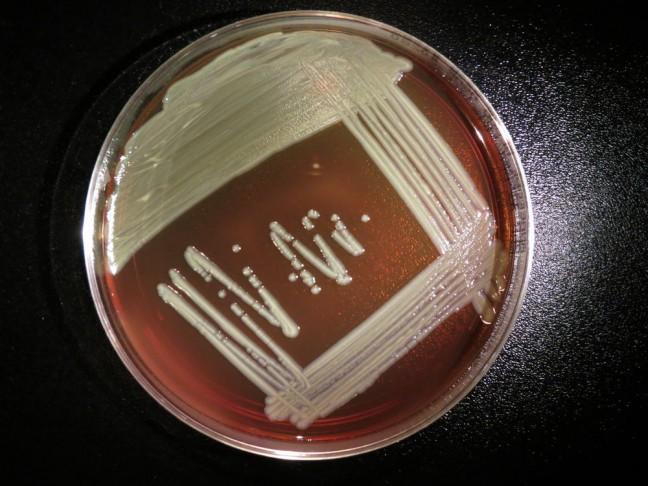University of Wisconsin’s Microbiome Initiative looks to help fund faculty and students’ efforts on researching the tiny organisms that make up everyone and everything.
The Microbiome Initiative follows the a announced national initiative that seeks to invest in microbiology research, UW assistant professor of bacteriology Garret Suen said. UW Vice Chancellor for Research and Graduate Education Marsha Mailick will award the million-dollar grant to faculty and students to support interdisciplinary research, infrastructure and research community enhancements such as a conference or symposium related to the microbiome.
“UW has a rich tradition in microbiome research, and strategic investment in this area will serve to further enhance ongoing microbiome research on campus,” Suen said.
This is not be the first time UW has been in the spotlight for microbiome research. Nobel Laureate Joshua Lederberg, a former UW professor and founder of UW’s medical genetics department, is credited with coining the term microbiome, Suen said. Jo Handelsman, Associate director for science at the White House Office of Science and Technology Policy and former UW professor, is credited with helping to define and codify many of the approaches used to study microbiomes.
Handelsman will be returning to campus as director of the Wisconsin Institutes for Discovery and is behind the National Microbiome Initiative, Suen said.
Over the last few years, 25 UW faculty have submitted 67 research proposals to federal agencies and other funders, resulting in 20 awards that currently generate approximately $8 million a year. With this initiative, Mailick hopes to build on this record of success.
Funding for the initiative comes equally from the chancellor’s office and Mailick’s office. Initiative research and infrastructure projects will be eligible for a maximum award of $250,000 and research community enhancement awards are eligible for up to $10,000. Funding is to be spent over two years, Mailick said.
UW’s initiative is modeled after the “very successful” UW2020 initiative, Mailick said. The goal of UW2020 is to stimulate and support highly innovative research on campus, as well as projects that require significant development prior to submitting applications for external funding.
Mailick said the potential of microbiome research is “enormous” and could give UW faculty an advantage when they apply for federal funding for their research in this area. She said she also hopes to engage new research in this area and to encourage researchers to reach out across campus and establish multidisciplinary research that has the potential to revolutionize areas such as health care, agriculture, bio-manufacturing, environmental management and more.
“Given recent and projected investments in this area by federal agencies and private foundations, there is an opportunity for substantial growth in extramural support and the UW Microbiome Initiative helps position UW researchers to be more competitive for this funding,” Mailick said.
Trina McMahon, UW professor of bacteriology and civil and environmental engineering, said the initiative also provides opportunities for undergraduate and graduate students to get involved in a “really hot” area of research.
UW also appears to be falling behind when it comes to advertising its achievements in microbiology research, which McMahon said the initiative will help bring to the public eye.
“There is a lot of awareness of microbiomes — now much more than there used to be,” McMahon said. “So, I think undergraduates who want to get involved in timely, impactful research can benefit from the Microbiome Initiative.”
Suen said investment in microbiome research will help to train future generations of workers. Currently, resources are available to help construct infrastructure for microbiome research, which will undoubtedly benefit researchers across campus.
Proposals for the initiative are due to the Office of the Vice Chancellor for Research and Graduate Education on March 15. A UW committee of subject matter experts will review the proposals to identify those that “hold the most promise for sustained research programs” or bring the community of microbiome researchers together, Mailick said. The committee will then make recommendations to the Office of the Vice Chancellor for Research and Graduate Education, which will make the final decision.
Awards will be announced mid-May.


